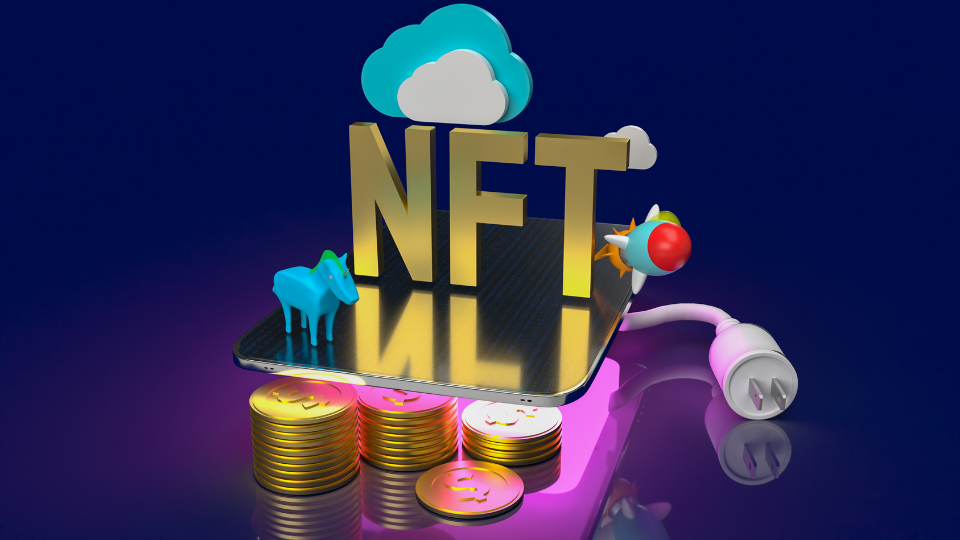
3 Common Investing Mistakes
Many people start out managing their own investments. But as their earnings and assets grow, their financial needs and challenges become more complex—and continuing to…


The collectibles industry used to be defined by classic keepsakes such as stamps, coins, and trading cards. Today, a new kind of collectible called non-fungible tokens (“NFTs”) has exploded in popularity. From music to digital game pieces, NFTs are digital assets that sometimes sell for millions of dollars. Twitter co-founder Jack Dorsey sold his first-ever Tweet as an NFT for $2.9 million!
But is there any substance behind the hype? And what does it mean for you?
Understanding NFTs
NFTs offer a blockchain-created certificate of authenticity for any digital asset. This asset can be a piece of music, a token for a popular game, or a piece of digital art. To understand an NFT, consider its components:
Therefore, each NFT is unique and can readily solve the problem of users creating multiple copies of a digital asset. In effect, Jack Dorsey’s original tweet cannot be copied or duplicated because of NFT technology!
Why are NFTs popular?
Traditional artists rely on auction houses and galleries to sell their work. These galleries and auction houses authenticate the work as original. Now artists can sell digital works at the same prices as rare works of art by using NFTs to do the authentication work for them. It is so popular now that even companies are getting in on the action. For example, a Charmin digital brand was auctioned off to raise funds for charity.
Why are some NFTs so expensive?
Just like physical collectibles, there’s a market for NFTs. Current NFT buyers tend to be tech workers and entrepreneurs who understand the intricacies of purchasing digital goods. Artists are also dipping their toe into the NFT waters. For instance, superstar artists like King of Leon and Steve Aoki have sold NFTs for millions of dollars. Just imagine if your favorite musician decided to record an exclusive piece of music and then only sell 100 copies of the song. How much would you pay?
What You Need to Know
Here’s what you need to know about getting involved with NFTs:
Because NFTs are becoming so popular, so fast, many experts are leery of what the world of NFTs will look like in the future. Regulation is currently lacking, and legal precedence is unclear. While blockchain technology can verify your purchase, does owning the NFT of something really mean you own the asset? Will NFTs stand up in court? These are some of the questions being asked without concrete answers.
As always, should you have any questions or concerns regarding your tax situation please feel free to call.
No Professional Advice, Client Relationship, or Reliance on Information
Please note that any information or content on our Website, or any forms or tools on our Website which allow you to submit information or make calculations, and your use thereof, are not intended to provide any kind of professional advice, consultation or service, including but not limited to, legal, accounting, tax, or business advice. Nor does any such information, content, forms, or tools, or your use thereof or reliance thereon, create or constitute an attorney/client, accountant/client, or consultant/client relationship. You should therefore not use our Website or reliance on any information, content, forms, or tools on our Website as a substitute for any kind of professional advice. Rather, you should consult with a licensed professional, including one employed by our Company, for any accounting or tax questions you may have. You agree that we will not be liable to you or to any third party to the extent you treat or consider any information, content, forms, or tools on our Website as constituting any kind of professional advice. The information and content, including but not limited to forms and tools, presented on or made available through our Website are made available solely for general information purposes. We, therefore, do not warrant the accuracy, completeness or usefulness of any such information, content, forms, or tools, and any reliance you place on the same is strictly at your own risk. We disclaim all liability and responsibility arising from any reliance placed on such materials by you or any other visitor to our Website, or by anyone who may be informed of any of its content.
Our Website provides illustrative lists of services that we provide. Nothing contained on our Website shall be construed as an offer or guarantee to provide any particular services to you, nor shall anything on our Website be construed as a direct solicitation for employment by any persons, companies, or organizations. Prior results we have obtained for others do not guarantee a similar outcome.

Many people start out managing their own investments. But as their earnings and assets grow, their financial needs and challenges become more complex—and continuing to…

Beaird Harris is pleased to welcome three new partners: Nathan Biggs, Matt Edrington and Matt Skinner, to its public accounting practice, signifying the Firm’s continued…

Beaird Harris Named to Dallas Business Journal’s 2024 List of “Top 100 Money Managers.”

We’ll help you get started and learn more about Beaird Harris.